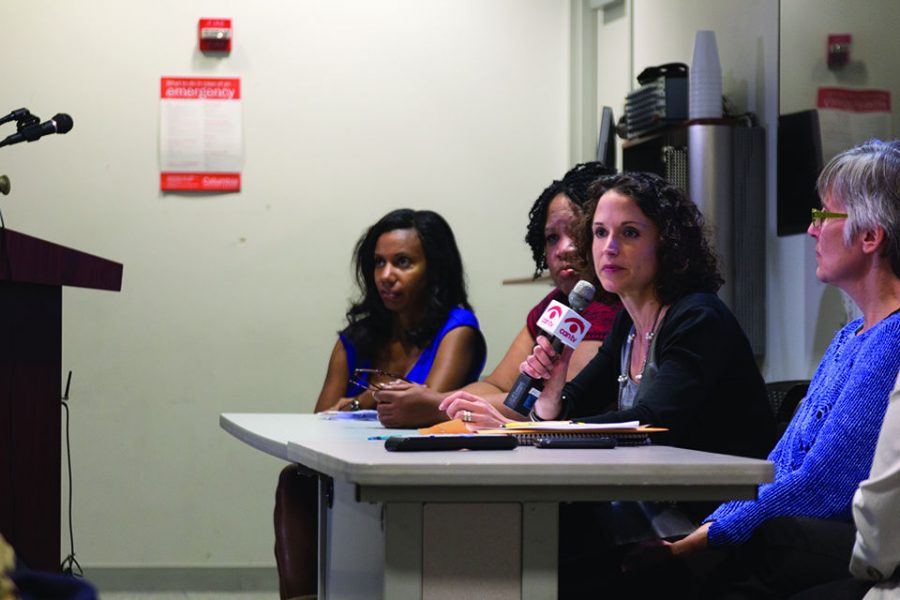Community group hosts conversation on state of affordable housing
Marisa Novara, representative of Metropolitan Planning Comission, took questions from the audiance of Chicago Housing at 33 E Congress, on Dec 01.
December 7, 2015
Panelists at a Dec. 1 forum for journalists, nonprofit representatives and community members said Chicago lacks adequate affordable housing options.
The forum was hosted by Public Narrative, a group that helps community organizations promote themselves in the media, and took place at 33 E. Congress Parkway.
Panelists spoke about the need for more affordable housing options in the city. They said residents often do not live where they would like to because they cannot afford to do so, and that existing options are often not in good repair or near resources like grocery stores.
Cheryl Johnson, a lifelong resident of the Altgeld Gardens public housing project on the far South Side, said there is no longer a grocery store in her neighborhood.
“You don’t see resources today like we had when I was growing up,” she said.
Johnson, the daughter of environmental justice activist Hazel Johnson who founded People for Community Recovery, said her community and others similar to it suffer from two main issues: a lack of opportunities for residents and misconceptions she says stem from the media. She said she would like to see more positive reporting about “striving people” who come from her neighborhood.
The decline in manufacturing jobs hit her community hard, she said, specifically referring to the closing of a steel mill that had employed many of her neighbors.
“When the steel mill closed, that changed the whole economy of my community,” she said.
Marisa Novara, director ofthe Metropolitan Planning Commission, said some low-income and affordable-housing communitieslike Johnson’s are seeing progress.
“You have had a rise in community development corporations that has grown largely in distressed, low-income communities,” she said. “Many of them have taken on the development of affordable housing.”
The problem, Novara said, is that these projects are not happening throughout the city.
“You don’t see those same organizations in areas that are more wealthy,” she said.
Novara said areas like downtown and the North Side lack development of affordable housing for many reasons. Higher property values in these areas allow developers to charge more for units, and in some neighborhoods they simply cannot afford to charge low rent.
The city of Chicago’s Affordable Requirements Ordinance mandates that developers who receive city assistance include a small number of affordable units in their projects, but Novara said those developers often write a check to the city as an alternative.
Resources are available to low-income residents looking for a home, noted Daniel Bahena, a real estate agent at The Resurrection Project. Unlike most agents, Bahena is paid a salary, not commission, which he said makes him better suited to help homebuyers find the best solution for them, regardless of their financial situation, because he will not receive a higher commission from a higher-priced sale.
“Life happens—people fall on hard times,” he said.
Bahena said he helps people build and repair credit, noting there are a number of grants and assistance programs available to first-time homebuyers.
“We try to create many opportunities for affordable home ownership,” he said.








